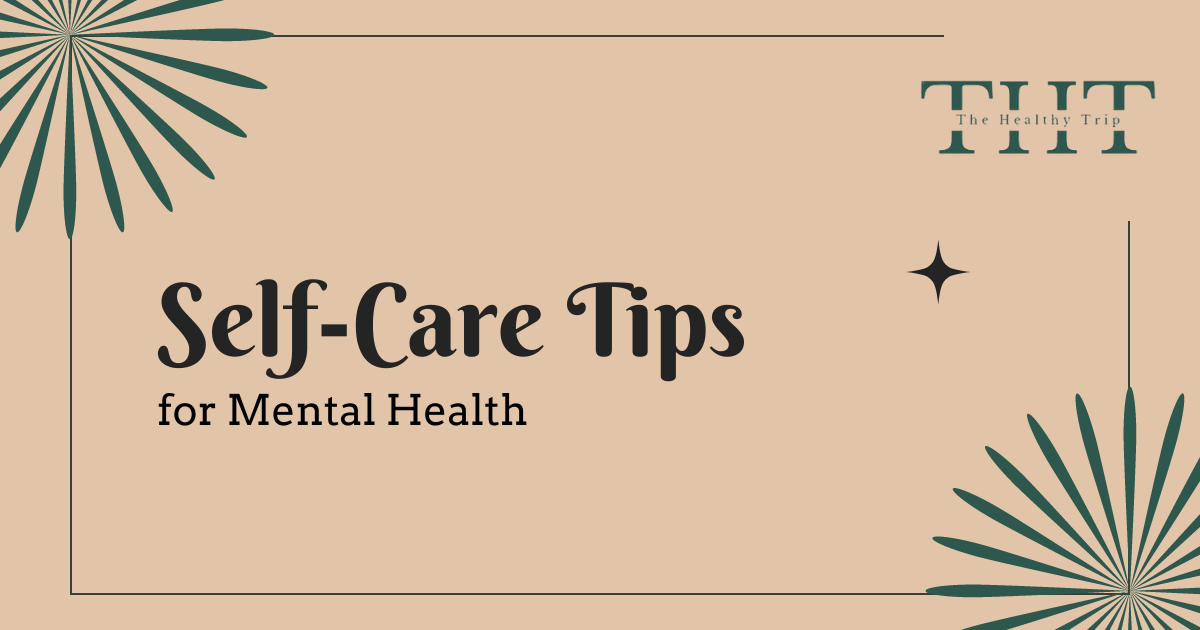Maintaining your intellectual fitness at par with the physical fitness is very essential. In this day and age with a hustle and bustle of a fast moving world, one may easily get carried away in the activities and forget to take care of themselves. However, practicing self care is necessary in order to have a healthy mind and for stress management. For that purpose, this blog will talk about several self-care methods that are uncomplicated and beneficial to your mental health and enhance your overall quality of life.
What Is Self-Care?
Self-care refers to the process of planning and undertaking actions in order to protect and enhance the mental, emotional and physical conditions of an individual. It means carving out a space for oneself and engaging in activities that restore and energize one. Self-care cannot be uniform for everyone as they are different; it is about what one does best for oneself and how often this routine is dosed.
Self-care is mainly critical for intellectual health because it allows you manage pressure, construct resilience, and prevent burnout. By looking after your mental well-being, you could higher take care of existence’s demanding situations and maintain a positive outlook.
Why Is Self-Care Important for Mental Health?
Life is full of challenges and if you do not take proper self-care then stress will affect your mental health. Stress for a longer period can cause you to feel anxious, depressed, or burnout. Aiming self-care provides you an excess of means to control stress and keeps your brain in a healthy condition.
Self-care also helps strengthen the bond you have with yourself. It enables you to check in with your emotions, understand your needs, and take steps to meet those needs. This knowledge of oneself is crucial to the protection of mental and emotional health.
Simple Self-Care Tips for Mental Health
Now that we have a grasp of the significance of self-care to mental health, let us look at some of the uncomplicated and realistic self-care practices that you could integrate in your day to day activities.
1. Practice Mindfulness and Meditation
Mindfulness is focusing on the present while immersing oneself actively in the surroundings and one’s thoughts without judging anything. It helps one to control their feelings better and helps reduce the stress not only within the body but more so in the mind.
If you want to learn about practicing being aware, meditation is an excellent way to do this. Meditating, even if only for a few minutes every day, can clear the mind, diminish anxiety, and brighten one’s mood. To clear your mind and concentrate, you may try simple breathing exercises or listening to guided visualizations.

2. Stay Physically Active
Physical exercise is not only beneficial to the body but the brain as well. The reason being endorphin is released, and they are happy hormones. Regular physical exercise also reduces the effects of anxiety and depression, promotes better sleep, and enhances general health.
You do not have to do intense workouts to embrace physical activity or its benefits. Walking, yoga or even dancing are simple activities that will help improve your mental health status. The key is to find something that you love and do it as part of your daily routine.

3. Get Enough Sleep
It is a well-known fact that sleep plays a significant role in maintaining optimal mental health. Any changes in your sleep patterns can, in turn, have an effect on your mood, energy level and stress management abilities. Long term sleeping disorders, among other things, can create even worse problems in the brain such as clinical depression and anxiety.
For better quality of sleep try to have a consistent sleep pattern by going to the same bed time and waking up the same time every day. Another idea is to use creativity and make a calming pre slumber activity like reading a novel or taking a warm bath so that your body can understand it is time to slow down. Endevor to make the surroundings favorable for sleeping by ensuring that they are still, free from disturbance causing elements and comfortable.

4. Connect with Others
Do you agree with the saying, “health is wealth”? Then mental well-being is the greatest treasure of all. We are social animals and this is a fact that we need people and relationships for good mental health. Being around friends, family or loved ones makes you feel appreciated and cared for.
Also, it allows room for expressing oneself which can be a healing experience-in itself. Try and speak to someone will ease the feeling of disconnection. Even a simple phone call or video call will make you feel more in touch. If you find it difficult to connect with people, you can go for a help group or even a community center where you can find people with similar experiences or interests.

5. Set Healthy Boundaries
Establishing healthy limits is an essential aspect of self-knowledge. It includes acknowledging one’s limits and communicating them with others. This is bound to prevent you from feeling overwhelmed and help lessen stress.
Healthy boundaries can extend to various aspects of life including work, relationships, and leisure time. For instance, you might want to put boundaries on your working hours so as to ensure that you have some time for rest and recreation. In relationships, boundaries allow you to protect your mental health as well as afford equilibrium.
Whenever you feel that the situation negates your requirements or beliefs, do not hesitate to refuse. You do not have to feel guilty about self-care, it is integral in preserving one’s sanity.

6. Practice Gratitude
Gratitude refers to the tendency of concentrating on the positive elements of one’s life and valuing what one has. It is a small but a very effective way of changing one’s mindset for the better towards a sound mental health.
There are many ways of showing gratitude and one of them is by keeping a gratitude diary in which you record few things that you appreciate on daily basis. This will enable you to shift your focus towards the positive aspects of your life and alleviate negative thoughts. In the long run, practicing gratitude has been found to increase levels of happiness and improve one’s outlook towards life.

7. Engage in Creative Activities
Creative sports like drawing, painting, writing or even composing a song are perfect ways to express your emotions and let go of stress. You get to use a creative energy engaging in activities that can be considered as a form of meditation effective in relaxing and goals at the present.
One need not be an artist or a music expert to appreciate creative activities. It is the process that is the challenge as well as the beauty: learning to stop oneself from criticism. One such outlet could be doodling in a notepad or inaming a few tunes and playing an instrument. Such forms of creativity are very helpful for mental wellness.

8. Eat a Balanced Diet
The food ingested can play a great role in maintaining one’s mental health. Eating a balanced diet that has a lot of vitamins and minerals, aids in the functioning of the brain and helps to stabilize moods.
Make sure to augment your meals with plenty of fruits, vegetables, whole grains and, lean protein sources. Foods rich in omega-three fatty acids, such as fatty fish and walnuts, are good for the brain health. Also, avoid fast foods, sugary foods, and caffeinated drinks because they cause mood changes and agitation.
Also, drinking plenty of water is important for the mind. Make sure you take enough water during the day to help your body and mind work well.

9. Take Breaks and Practice Relaxation
It is recommended to take frequent short breaks throughout the day in order to manage stress levels and combat exhaustion. Whether at the office or at home, it is necessary to take some time off from work and allow oneself some rest.
During breaks, engage rest techniques such as deep breathing, gently stretching or just resting your eyes for a few seconds. These brief breaks can serve to refresh you and often assist in clearing your mind

10. Seek Professional Help When Needed
Do Not Hesitate to Seek Help from a Professional When Necessary It is true that self-care does much to enhance one’s mental wellbeing. However, it is necessary to know how when to get extra help. If you are fighting tension, depression and other mental issues you should not shy away from looking for professional treatment.
Psychologists, psychotherapists, and other mental health services can help and support you according to your needs. There is nothing wrong in seeking for help – and that could be quite an important especially the phase of the self-care process.

Conclusion
Taking care of your mental fitness is not a one-off activity but a strategy that you pursue and adopt in all the days of your lives. It is possible to improve one’s mental health and develop an ability to cope with the difficulties in life by adding these basic self-care tips into a person’s everyday routine.
Self-care is not a nice-to-have – it is a crucial component of good health and well-being. Be it through action, actively engaging with loved ones or becoming absorbed in activities such as mindfulness, put aside some time for these activities which feed your inner self. Emphasis on self-care will lead to maintaining a healthy balance in one’s life and an improvement in overall quality of life.










